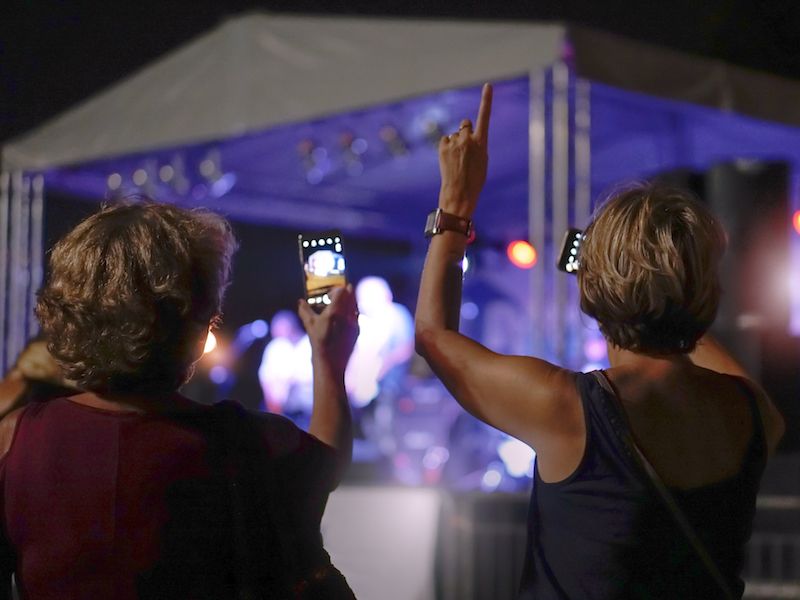
We’ve been getting excited about summer activities all year: swimming in the pool, visiting the beach, and other activities that could injure your ears. That’s right, summer holds a few unseen potential risks to your hearing, either from loud sounds or the external scenarios you might find yourself in. Any sounds over 80 decibels could result in damage to your ears, while swimming in pools or other bodies of water can result in lasting loss of hearing. To keep your hearing safe and sound this summer, you need to be conscious of your surroundings and take preventative measures. Keep reading to learn the summer’s 6 hidden hazards to your ears.
Wear Ear Protection at Concerts
The summer season is concert time, but even if you go to a venue, you still need to attend to your ears. 90 decibels is inside the danger zone for ear damage and concerts reach this volume even at outdoor venues. So regardless of whether you’re going to outside or inside concerts, it’s a good idea to use earplugs. Earplugs reduce the sound while still enabling you to hear and enjoy the music. If you’re going to a show with young children, consider buying them a heavy duty pair of earmuffs since their ears are much more delicate than those of adults.
It’s More Than Just Loud at Fireworks
Honestly, there are a lot of reasons to avoid fireworks in the summer. This is not about the specialized 4th of July displays, we mean the backyard fireworks which every summertime cause many of injuries. On top of causing hand injuries, loss of vision, and house fires, backyard fireworks can also cause severe harm to your ears since they’re known to reach volume levels of 155 dB. This year, on the 4th of July, appreciate the show from a distance and leave the fireworks to the pro’s.
Hearing Loss Can be Caused by Lawnmowers
If you’re really serious about your lawn, chances are you’re out there at least once a week on your lawnmower, using your edger, and trimming your bushes. But that muffled feeling in your ears is an indication that your hearing has been damaged. That’s because the lawn tools, which are constantly loud, have a slow and steady impact on your hearing. If you’ve ever observed lawn care pro’s, it is likely you have noticed them wearing ear protection, next time you do yard work with loud power equipment, you should take a cue from them and wear earplugs or earmuffs.
How to Protect Your Ears at Beaches And Pools
Millions of people suffer from swimmer’s ear every summer, which occurs when bacteria-packed water becomes stuck inside your ear canal. The bacteria then infects the ear, leading to painful earaches and swelling. It’s not exclusively rivers and lakes that hold these bacteria, they can sometimes be found in hot tubs and pools if they are not cleaned and treated properly. As long as you have your ears treated by a hearing specialist you should be ok, and no permanent loss of hearing will occur. To prevent swimmer’s ear, however, you should wear specialized swimming earplugs in the pool and have your pool water analyzed to be certain the chemical balance is ok.
Boats and Other Water Sports
Summertime is a breath of freedom for those who enjoy being in a boat on the water, smelling the fresh lake breeze or the salty air of the ocean. But, boat and jet ski engines are usually noisy,we’re talking more than 100 decibels. Continual subjection to that kind of noise for a period of about 15 minutes can bring about irreparable hearing impairment. Once again, it’s really a smart choice to use a couple of throw away, foam earplugs when you’re out on the water to make sure you don’t unwittingly harm your ears.
Car Races Can Hurt Your Hearing
It doesn’t make a difference what kind of auto racing you like, midget, Formula 1, drag racing, motorcycle Formula 1. If you attend a lot of auto-races this summer, they all pose a risk. 120 dB is inside of the danger zone for hearing impairment and a number of races go well above this. As pointed out before, your kids should use muffs while you should wear earplugs at least. Because you may not be able to appreciate the sounds of any races in the future if you don’t.